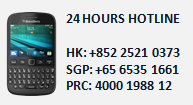USA

Maritime security
Conduct by government boarding officials
Isolated instances continue to be reported of improper conduct by government agents boarding vessels under routine circumstances. The reader is reminded to assure that all vessels entering the US from abroad carry onboard a copy of the relevant USCG and DHS boarding policies should problems arise. The USCG Policy Advisory Council document 30-04 is available at images/circulars/PACD30_04.pdf while the DHS boarding policy can be found at images/circulars/BTS_Access.pdfCSA has received information that in a number cases involving boarding official challenges to vessel security requirements (refusal to show ID, sign visitor log), the issue was satisfactorily resolved when the Master provided a copy of the respective policy to the boarding official. In instances where this was not sufficient to resolve the problem, immediate contact of the local US Coast Guard office resulted in an acceptable resolution.
USCG treatment of
absconder/desertion cases
Over the past several months, two absconder cases have occurred in the USCG 8th District (US Gulf) which have resulted initially in the imposition of additional requirements/ restrictions on the vessels involved.
Two distinctly different responses were provided by the vessel owners involved to the USCG and both resulted in rescission of the order containing the additional requirements/ restrictions. In one instance, the shipowner developed an entirely new set of crew security procedures which included additional training and reporting processes above and beyond that required under ISPS. In the second instance, the shipowner provided a detailed response as to what the company and vessel was already doing under their ISPS implementation program to prevent such an occurrence include details of the company hiring procedures, manning of the vessel using crewmembers previously assigned to the vessel, requiring where possible that all crewmembers carry a valid US visa, and regular mustering of the crew while in US ports. In addition the vessel owner's response detailed the circumstances surrounding their specific incident including the facts that the absconding crew member had a valid US visa and shore pass, had previously visited US ports on that ship three times prior to the incident and that the port state control authorities were notified in a timely fashion due to the regular musters held on board the vessel.
The differences between the responses in the two cases noted above are remarkable in the fact that the first resulted in the vessel committing to new procedures not required by ISPS, while the second response essentially was a detailed collection of facts that simply reiterated the programs the vessel owner and vessel already had in place as a result of their ISPS implementation program. Vessel owners are urged, at least initially, to follow the second format should an incident occur aboard a vessel. This response not only details the proper implementation of ISPS but also confirms that the system, as it currently operates, is working to mitigate the occurrence of such incidents to the maximum extent possible. CSA continues to engage in discussions with the USCG for those situations, which we believe, represent a local departure from national policy.
Port Security Advisory 1-05
The USCG has issued its most recent Port Security Advisory (1-05) which may be viewed at http://www.uscg.mil/hq/g-m/mp/xport.html The good news is that only 7 countries are listed on this advisory (Albania, Madagascar, the Democratic Republic of the Congo, Mauritania, Guinea-Bissau, Nauru and Liberia) based on the US Coast Guard's finding that they have not communicated all the necessary port facility security compliance information to IMO or the US Coast Guard.
The bad news is that vessels of any flag that have visited one of the listed countries during their last five port calls must take specific actions as detailed in the advisory or otherwise be denied entry into US ports. This is a ramp-up of previous advisories where vessels inbound from a listed port would be subject to additional port state control requirements but not be denied entry simply by virtue of their port call history.





